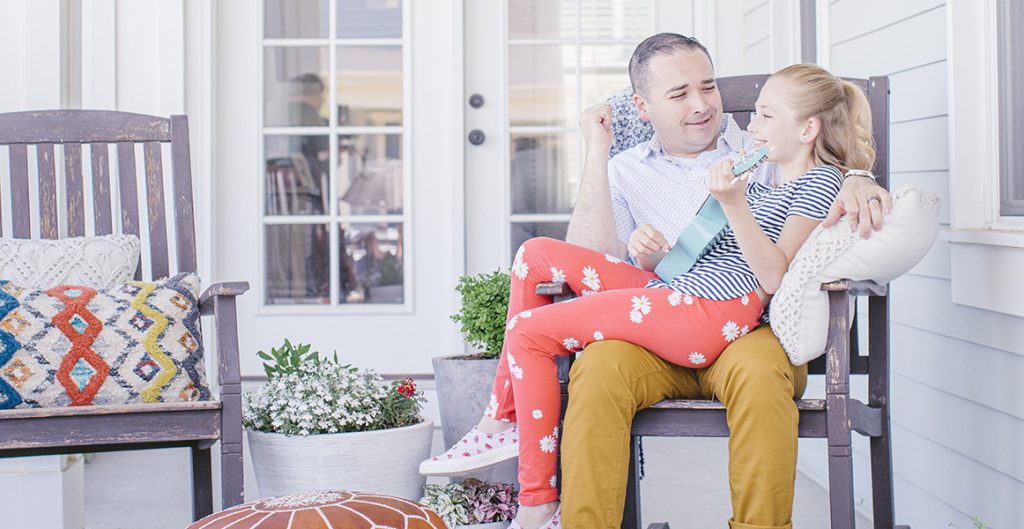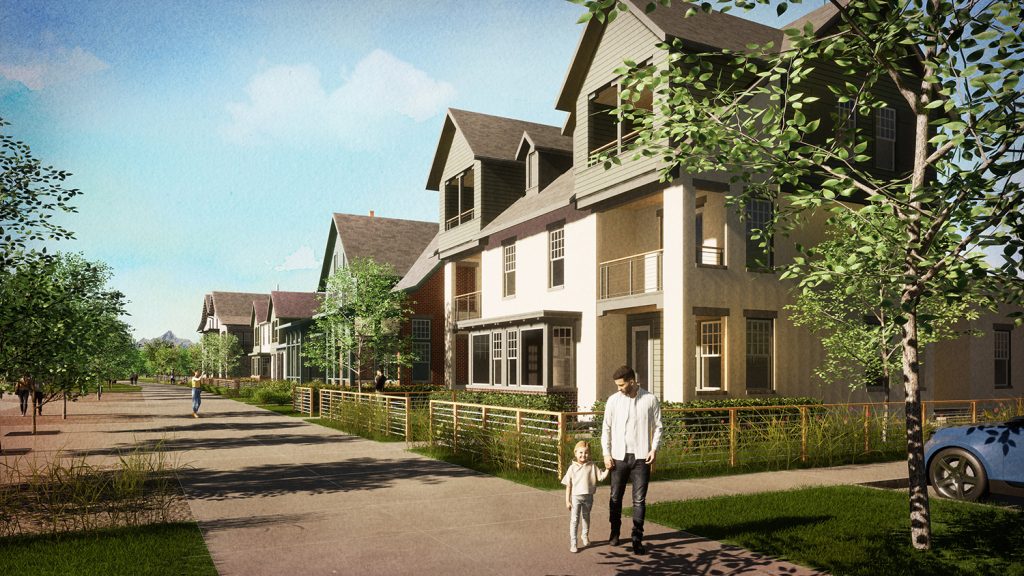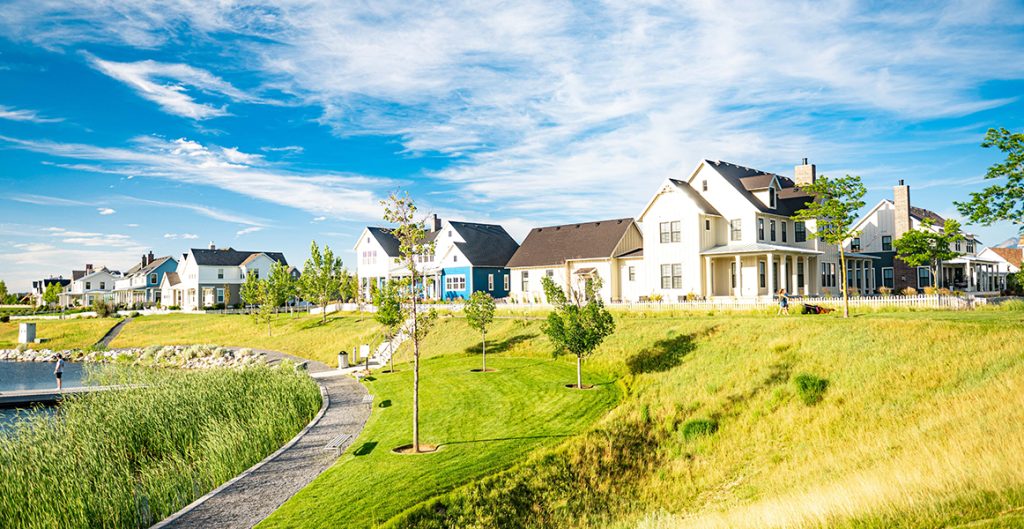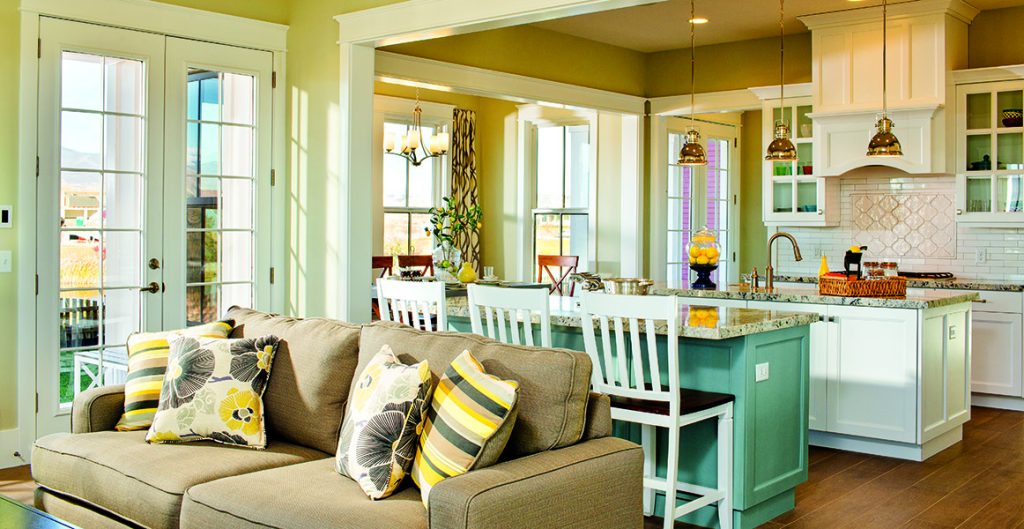Thinking about buying a home in 2025? You’re in good company. A recent survey shows that 86% of Gen Z adults plan to buy a home within the next five years, and millennials now represent the largest share of homebuyers at 38%. Despite a shifting market, homeownership remains a major life goal across generations.
Keep reading to explore how buying a home in Utah—whether it’s your first or your next—can bring lasting financial, personal, and community rewards.

What are the main benefits of homeownership?
#1 Homeownership Is a Smart Financial Move.
Is It Better to Rent or Own?
Deciding whether to rent or buy a home comes down to your personal goals and financial future. While renting may offer short-term flexibility, homeownership offers long-term advantages—including building equity, accessing tax benefits, enjoying predictable housing costs, and investing in your future. If you’re planning to stay in one place for a few years or more, buying a home in Utah could set you on the path to greater stability and wealth.
Owning a Home Builds Equity
When you own your home, every mortgage payment contributes to your equity—unlike rent, which simply covers someone else’s mortgage. Over time, your home’s value is likely to increase, which means your net worth grows with it. Equity can be tapped into later through refinancing or home equity loans, providing more financial flexibility down the road.
Homes Are Long-Term Investments
Real estate continues to be one of the most consistent ways to build wealth over time. According to the Federal Housing Finance Agency (FHFA), home values in Utah have appreciated by more than 110% over the past five years—significantly higher than the national average of roughly 50%. And since 1991, Utah home values have increased over 650%, compared to around 290% nationally.
This long-term growth is one reason why 88% of homeowners believe real estate is a sound financial investment, with half saying it’s a better investment than the stock market.
Down Payments Are More Affordable Than You Think
One of the most common myths about buying a home is that you need a 20% down payment. In reality, first-time buyers put down just 6% on average, according to the latest National Association of Realtors® data. Repeat buyers typically put down about 17%.
And help is available: Utah’s S.B. 240 Homebuyer Assistance Program offers eligible first-time buyers up to $20,000 toward a new construction home under $450,000. That money can be used toward your down payment, closing costs, or to buy down your interest rate—helping you get into a home sooner than you might expect.
Save on Your Taxes When You Own a Home
Homeowners can take advantage of several tax benefits that renters miss out on. These include:
- Mortgage interest deductions
- Property tax deductions
- PMI (private mortgage insurance) deductions, if you qualify
- Discount point deductions, if you buy down your interest rate
In addition, the Inflation Reduction Act offers up to $3,200 annually in tax credits for energy-efficient home upgrades, such as installing new windows, insulation, or HVAC systems—further reducing your overall homeownership costs.
Of course, tax laws can change and individual eligibility varies, so it’s best to speak with a tax advisor to understand which deductions apply to your situation.
Homeowners Enjoy Predictable Monthly Payments
In most states—including Utah—rent is unregulated and can increase year over year. But with a fixed-rate mortgage, your monthly principal and interest payments stay the same for the life of your loan, giving you the ability to plan and budget with confidence.
Experts recommend saving about 1% of your home’s value each year for maintenance and repairs. However, when you buy a new construction home, you’ll likely enjoy lower short-term costs thanks to modern materials, energy-efficient systems, and builder warranties on major components like HVAC, roofing, and appliances.
And with a new build, you’ll skip the expensive remodels and repairs—your home will be move-in ready and designed exactly how you want it from day one.
Discover Programs Designed for First-Time Homebuyers
If you’re a first-time homebuyer, explore the many government grants and programs designed exclusively to help you. You may be able to withdraw up to $10,000 from your traditional Roth IRA for buying or building a new home. Or receive mortgage rate discounts, closing cost assistance, or more.
Is Homeownership Always a Good Financial Decision?
While homeownership offers many benefits, it’s not a one-size-fits-all decision. If you’re not sure whether buying is the right move right now, talking with a lender or financial advisor can help you understand your options and build a plan that fits your timeline and goals.
Even if you’re not ready today, you can begin preparing—so when the right opportunity comes along, you’ll be ready to act with confidence.

#2 Homeownership Is a Smart Personal Move.
There’s nothing quite like the feeling of turning a house into your home. Whether it’s installing the crown molding you’ve always dreamed of, repainting the walls on a whim, or finally swapping out that builder-grade light fixture—owning your home means you’re in charge. No permission slips, no landlord red tape. Personalizing your living space is empowering, and that sense of ownership is only the beginning. In fact, the personal benefits of homeownership go far deeper, touching everything from mental health to family well-being.
Happier, Healthier Families
Reaching the milestone of homeownership brings more than pride—it’s proven to positively impact your mental and emotional health. Studies have consistently shown that homeowners report higher levels of happiness, life satisfaction, and self-esteem compared to renters.
In a 2023 study from Habitat for Humanity, researchers found that children of homeowners were not only more likely to graduate high school (by about 19%), but were also twice as likely to pursue college education compared to children in rental households. These outcomes are linked to greater household stability and more consistent access to learning resources at home.
Earlier research from Ohio State and Purdue University found that children living in owned homes also scored higher on standardized tests in math and reading—and experienced fewer behavioral problems overall. While the exact reasons may vary, many experts believe it stems from the stability, predictability, and emotional security that come with living in a home you can call your own.
More Privacy
When you own your home, you decide who comes and goes. No more landlord inspections, surprise maintenance visits, or concerns about who holds a spare key. Your space is truly your own, and that privacy leads to a greater sense of safety and peace of mind.
Plus, owning eliminates restrictions on pets—no breed bans, no deposits, and no monthly pet rent. Your furry family members are as welcome as everyone else in your home.
Increased Flexibility
Life is unpredictable. Whether it’s a job transfer, a family emergency, or a temporary move, owning a home gives you options. You might choose to rent it out, sell it, or use it as a second home. As a renter, those options are limited. Breaking a lease can cost thousands, and you’ll walk away with nothing to show for all your rent payments.
With homeownership, your property can continue working for you—building equity and maintaining value—even if you’re not living in it full-time.
Enjoy Lifestyle Amenities
Many renters enjoy access to shared amenities like pools or gyms, but buying in a master-planned community like Daybreak means those perks go to a whole new level. Here, homeowners can enjoy:
- A 60-acre freshwater lake and paddleboard beach
- Community pools and splash pads
- 50+ miles of walking and biking trails
- Neighborhood parks, dog areas, and sports courts
- Cafés, boutiques, and events right outside your door
And the best part? These amenities are available to all residents—whether you’re in a townhome or a luxury lakefront home. It’s lifestyle living designed to enhance your every day.
Pride in Your Investment
When you rent, a scuffed wall or broken fixture is just another inconvenience—something someone else will (hopefully) fix. But when it’s your home, you care. You patch the wall, touch up the paint, maybe even upgrade the entire room. That investment in your space builds more than equity—it builds pride and personal identity.
Homeownership encourages care and stewardship, not just for your own space but often for your neighborhood, too. You may find yourself joining a garden club, taking part in HOA projects, or simply enjoying conversations over the fence with neighbors.
That sense of pride extends to your financial future. Your home becomes more than a place to live—it’s a legacy, something you can one day sell for profit or pass down to the next generation. And with each improvement you make, you’re enhancing your investment while making it uniquely yours.

#3 Homeownership Is a Smart Social Move.
When you invest in a home, you’re not just investing in property—you’re investing in a community. Whether you’re the life of the block party or someone who prefers quiet walks around the neighborhood, homeownership creates natural opportunities to connect with others, build relationships, and feel a sense of belonging in the place you live.
Meet Neighbors and Build New Relationships
Neighbors matter no matter where you live, but homeownership tends to foster deeper, longer-lasting connections. Unlike short-term rentals, owning your home usually means staying put for several years—and that consistency opens the door to more meaningful relationships.
Good neighbors can watch your pets while you’re on vacation, help shovel your driveway after a snowstorm, or simply become trusted friends over time. In communities like Daybreak, homeowners often connect through dedicated resident Facebook groups, local apps, and block-wide events that make meeting new people easy—even if you’re new to the area.
These relationships become more than just friendly nods across the lawn—they become part of your support system.
Get Involved in Local Activities
One of the best parts about owning a home in a planned community is the built-in access to events, groups, and recreational opportunities. At Daybreak, for example, residents enjoy over 200 annual events, including concerts, farmers markets, holiday parties, and family festivals—many of which are hosted right within walking distance.
You don’t have to be the organizer to enjoy the benefits, but if that’s your style, you’ll find plenty of ways to get involved—whether it’s volunteering for a neighborhood cleanup, helping out with a local event, or joining a committee through your HOA or rec center.
And if you have kids, school and library programs create even more ways to build your local network and get plugged into the community.
Leave a Lasting Legacy
Homeownership also gives you the opportunity to shape your neighborhood’s future. That might mean joining your HOA board to help influence decisions that impact your block, attending city council meetings to advocate for neighborhood improvements, or supporting local schools and businesses through volunteering or mentorship.
When you own a home, you tend to care more about your surroundings—because they affect both your quality of life and your property value. Whether you plant trees, lead a civic project, or simply keep your yard looking sharp, you’re contributing to the character and pride of your community.
And over time, that investment builds more than equity—it builds a legacy of involvement, improvement, and leadership.

So, Is Homeownership Really Worth It?
Whether to rent or buy is a deeply personal decision—one only you can make by weighing your financial readiness, lifestyle preferences, and long-term goals. Start by asking yourself some key questions to help guide your path forward:
What are the pros and cons of homeownership?
Are you ready to settle down in a place you can truly make your own? Do you want the freedom to renovate, the stability of a fixed monthly payment, and the opportunity to build equity over time? If so, homeownership may be the right move—but it also comes with responsibilities like maintenance, taxes, and repairs. Ask yourself if the rewards are worth the trade-offs for your lifestyle.
What monthly payment can I afford, including property taxes, PMI, and HOA dues?
Factor in not just your mortgage, but also property taxes, homeowner’s insurance, HOA dues, and private mortgage insurance (PMI), if applicable. Compare this to your current rent—while renting might seem cheaper today, rent often increases annually, whereas a fixed-rate mortgage stays the same.
Do I have enough saved for a down payment and closing costs? Or the ability to secure funding?
The good news? You may need less than you think. The average down payment for first-time buyers is just 6%, and there are plenty of Utah homebuyer assistance programs that can help. Talk to a lender about your options and research available grants, like the S.B. 240 program, which offers up to $20,000 toward your purchase of a new construction home.
How long do I plan to live in my next residence?
If you plan to live in your new home for at least two years, you’ll likely benefit from appreciation and equity growth. Plus, when it’s time to sell, you could exclude up to $250,000 (or $500,000 for married couples) in profit from capital gains taxes—if you’ve lived there two of the past five years.
What’s my timeline for purchasing a home?
If your lease is ending soon, it’s time to start your home search. Keep in mind that custom builds can take several months, so if you need something sooner, consider exploring quick move-in inventory homes—especially in communities like Daybreak that offer both flexibility and variety.
How will buying a new home impact my lifestyle?
Buying a home should enhance your life—not stretch it thin. Aim for a home that fits your budget comfortably so you can enjoy your surroundings, take advantage of local amenities, and still have the freedom to travel, socialize, or simply relax. When you buy smart, you unlock a lifestyle of independence, stability, and possibility.
Is it a good time to buy a house in Utah?
While the homebuying frenzy that peaked during the pandemic has cooled, Utah’s housing market remains strong—especially for new construction homes. In fact, Daybreak saw a 21% year-over-year increase in new home sales in May 2023. So what’s fueling this continued demand?
Here are a few reasons why 2025 is still an ideal time to buy a home in Utah, especially if you’re considering new construction:
1. You Have More Time to Find the Right Home
At the height of the pandemic, homes in Utah were flying off the market—often with multiple offers and bidding wars. Builders struggled to keep up, and many buyers rushed into purchases without taking time to consider whether the home truly fit their needs.
Now, the market has regained some balance. In May 2023, the median days on market in Utah was 28 days, compared to just 20 days a year prior (source: Realtor.com). That extra breathing room gives today’s buyers a chance to tour more homes, weigh their options, and make thoughtful decisions without the fear of missing out.
2. More Inventory, More Customization
During the pandemic, supply chain disruptions made it difficult for builders to offer dirt-start homes—where buyers select finishes and design elements from the ground up. With materials delayed and labor stretched thin, many builders focused solely on delivering quick move-in homes.
Now that the supply chain has stabilized, many Utah builders have reopened their dirt-start programs, allowing you to personalize your home to your style and needs. Whether it’s flooring, cabinetry, or paint colors, building from the ground up gives you the power to make it truly yours.
And for those on a shorter timeline, the return of move-in ready inventory means you can still find beautiful, thoughtfully designed homes without the wait.
3. Existing Home Inventory Remains Tight
If you’re hoping to buy a resale home, be prepared for a limited selection. Mortgage rates have nearly doubled over the past two years, and most existing homeowners are choosing to stay put to preserve their historically low rates.
A recent Realtor.com survey found that 75% of homeowners feel “rate-locked,” meaning they’re reluctant to sell because buying a new home would mean financing at a higher interest rate. This has led to a significant drop in resale listings, tightening inventory across Utah and much of the country.
That’s why more buyers are turning to new construction—where supply is growing, timelines are flexible, and incentives may be available to help offset interest rates.
If you are thinking about buying an existing home, the market is a little tight. Mortgage rates have almost doubled in the past two years, which means that existing homeowners are not likely to move because it would mean losing their low interest rate. A recent Realtor.com survey indicated that 3/4 of homeowners felt locked into their home by their own low mortgage rate. This creates a supply issue in the market with existing inventory very low. Therefore, if you are in the market to buy a home, you are more than likely looking at new homes.
Whether you’re a first-time buyer or looking to upgrade, now is a smart time to explore new homes in Utah, especially in well-planned communities like Daybreak. With more inventory, better customization options, and fewer bidding wars, today’s market offers a much more buyer-friendly experience than we’ve seen in years.
If you’re ready to make a move, connect with a local expert to explore available quick move-in homes—or get started designing your dream home from the ground up.
When Is the Best Time to Buy a House in Utah?
While the best time to buy a home is ultimately a personal decision, we believe that any time is a good time to buy a new home in Utah—especially if you’re thinking long-term. Real estate is an investment in your future, and buying a home that fits your needs and goals is more important than trying to time the market perfectly. That said, understanding a few seasonal trends in Utah’s housing market can help you make a more informed decision about when to buy a home.
Spring and Summer = Peak Inventory
If variety is important to you, spring and summer tend to be the most active seasons for home sales in Utah. This is when existing home inventory peaks, as many homeowners list their properties during warmer months when moving is more convenient.
For new construction homes, builders often ramp up their supply of move-in ready homes in the spring, anticipating higher buyer traffic. You’ll have the most choices during this time—and potentially more model homes to tour.
Winter = Less Competition (and Potential Deals)
Home sales usually slow down in the winter months. Fewer people want to move during the holidays, and snow and shorter days tend to discourage home shopping. However, this slower pace can work in your favor.
If you’re buying a home in winter, you may face less competition and more negotiating power—especially with builders looking to close out their year or move remaining inventory. While there may be fewer homes on the market, the ones that are available often come with incentives or more flexible pricing.
Market Timing Isn’t Everything
While seasonal trends are helpful, they don’t tell the whole story. Interest rates, inventory levels, and buyer demand can all shift unexpectedly based on economic conditions, neighborhood popularity, or even changes in local development.
That’s why the best time to buy a house in Utah really comes down to your personal readiness—financially, emotionally, and logistically.
So… When Is the Right Time?
The right time to buy is when you:
- Have a stable financial foundation
- Understand your budget and long-term goals
- Find a home that checks the right boxes for your lifestyle
- Are prepared for the responsibilities of homeownership
If that sounds like you, don’t wait for the “perfect market”—the perfect home might already be out there.
A few things to consider if interest rates are making you question, “should I buy a house in Utah now or wait?”:
If rising interest rates have you debating whether to buy a house in Utah now or wait, keep in mind that mortgage rates move in cycles. The rate you lock in today is not forever—many homeowners refinance when rates drop, lowering their monthly payments and long-term costs. At the same time, Utah’s housing supply still falls short of demand, yet the market has cooled just enough to give buyers more leverage than they had during the pandemic frenzy. Sellers and builders are increasingly open to concessions such as closing-cost credits, rate buydowns, or even complimentary upgrades on quick move-in homes.
First-time buyers have another powerful advantage: Utah’s S.B. 240 First-Time Homebuyer Assistance Program. Administered by the Utah Housing Corporation, it provides up to $20,000 that can be applied toward a down payment, closing costs, or a permanent interest-rate buydown on a new-construction home priced at $450,000 or below. In other words, even if today’s rates feel lofty, you may be able to secure meaningful financial help up front—and refinance later if the market shifts in your favor. Taken together, these factors suggest that waiting solely for lower rates could mean missing out on price appreciation, available incentives, and substantial state assistance that make buying a home in Utah an attractive option right now. Check out more information here.
Ready to make a move?
There’s nothing like the feeling of turning your key and opening the door to a house you’ve just purchased. The sense of accomplishment. The knowledge that you’ve invested in your future. The connection to place. And to the people around you. It’s not just a house anymore. It’s your home.
If you decide you’re ready to buy, please don’t hesitate to reach out. We’d be happy to help you find a home you’ll love.